
rocklobsta
gamer level 3
859 xp
859 xp
followers
4
4
Use my invite URL to register (this will give me kudos)
https://boardgaming.com/register/?invited_by=rocklobsta
profile badges
...
...
...
...
recent achievements

I'm a Real Player!
Claim that you have played a game today by clicking the "Played Today!" button on a game page 25 times.
Claim that you have played a game today by clicking the "Played Today!" button on a game page 25 times.

Gamer - Level 3
Earn Gamer XP to level up!
Earn Gamer XP to level up!

Noble
Gain 2 followers
Gain 2 followers

I'm Gettin' the Hang of It
Claim that you have played a game today by clicking the "Played Today!" button on a game page 10 times.
Claim that you have played a game today by clicking the "Played Today!" button on a game page 10 times.
Player Stats
Critic (lvl 1)
130 xp
130 xp
Explorer (lvl 0)
97 xp
97 xp
Professor (lvl 0)
13 xp
13 xp
Reporter (lvl 1)
120 xp
120 xp
About Me
I take great joy in introducing new games to people, especially those who don't normally play board games. I love games with deep strategy and multiple paths to victory. I believe that a good game scales as it progresses. I love card drafting, worker placement, and resource management mechanics!

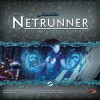

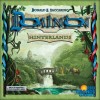






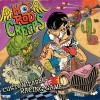




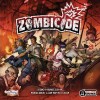





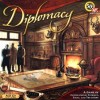
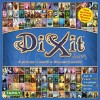





![Go to the Level 7 [Omega Protocol] page Go to the Level 7 [Omega Protocol] page](https://boardgaming.com/wp-content/uploads/2013/06/LEVEL-7-Omega-Protocol--100x100.jpg)




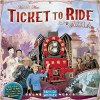

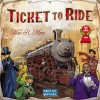
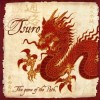



















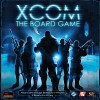

Sheriff of Nottingham
Upfront, Sheriff of Nottingham sounds like a simple and, to the critical gamer, potentially shallow bluffing game. However, after finally playing the game, I can say with certainty that there is a surprising level of depth and deduction here, and I’m very glad I bought this game.
If you’ve read any other review of this game, you’ll know the premise is simple. Draw legitimate and contraband item cards to your hand, place a number of these cards in a pouch, and then attempt to bluff your goods into your shop, trying to convince the Sheriff (a different player each round) that the goods in their pouch as exactly as you claim (you must be honest with the number of cards in your pouch, but you may only name one legitimate item type). If the Sheriff chooses to the let the pouch pass uninspected, all the items in the pouch make it past ‘customs’ and will be placed in the player’s shop, where they will be later scored at the end of the game. If the Sheriff inspects a pouch, and finds items you “failed to mention”, you must pay a fine to the Sheriff, and those items will be discarded, not making it to your shop. If the Sheriff inspects you and finds that you were telling the truth, they must pay you for your inconvenience. To make matters a little more interesting, merchant players are also able to offer bribes to the Sheriff, which can render a pouch unchecked, or further incriminate the player in question. The game dynamic revolves around being able to smuggle in the much more valuable contraband items without being caught, and being able to call the bluffs of other players when its your turn to play as the Sheriff.
As the Sheriff, the depth in this game lies in being able to read what’s currently in your opponents shops to deduce what could potentially be in their pouches. Card counting and being able to keep track of what’s been picked up and discarded will go a long way, for both merchants and the Sheriff. There’s also a phase within the round which allows players to publicly draw cards from a face-up pile, giving them the opportunity to better form their hand, or to fool the Sheriff on their next pouch.
Don’t get me wrong, the game isn’t as mechanical as I’m making it sound – it’s a very loose and social game. Like most bluffing games, body language, interrogation, and surprises are common in any match, and nothing is as satisfying as knowing you’ve successfully smuggled an illegal crossbow among 4 bushels of apples.
With the right group of friends, Sheriff of Nottingham is tense, exciting, and thrilling. Calculated risks are satisfying and rewarding, and when you get caught red handed, everyone has a good laugh. I get the feeling Sheriff of Nottingham will make its way into our party game rotation. This is the best bluffing game I’ve played since Avalon.